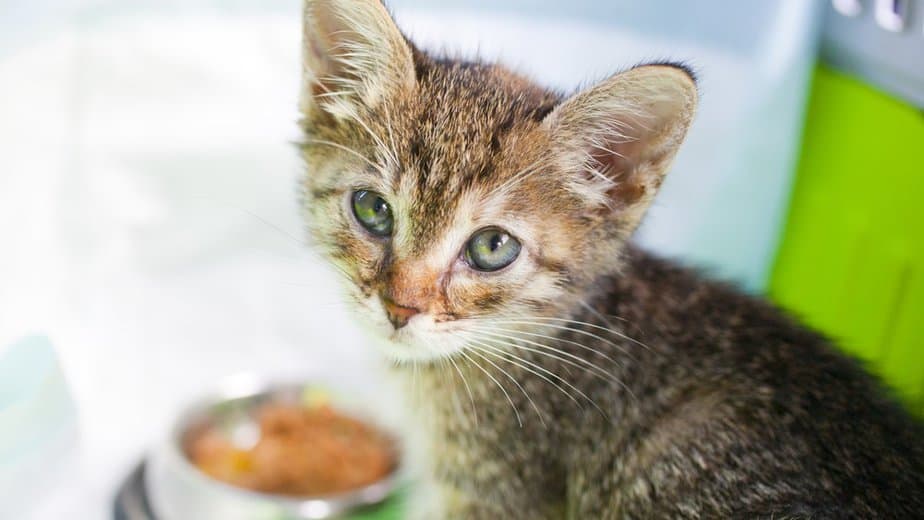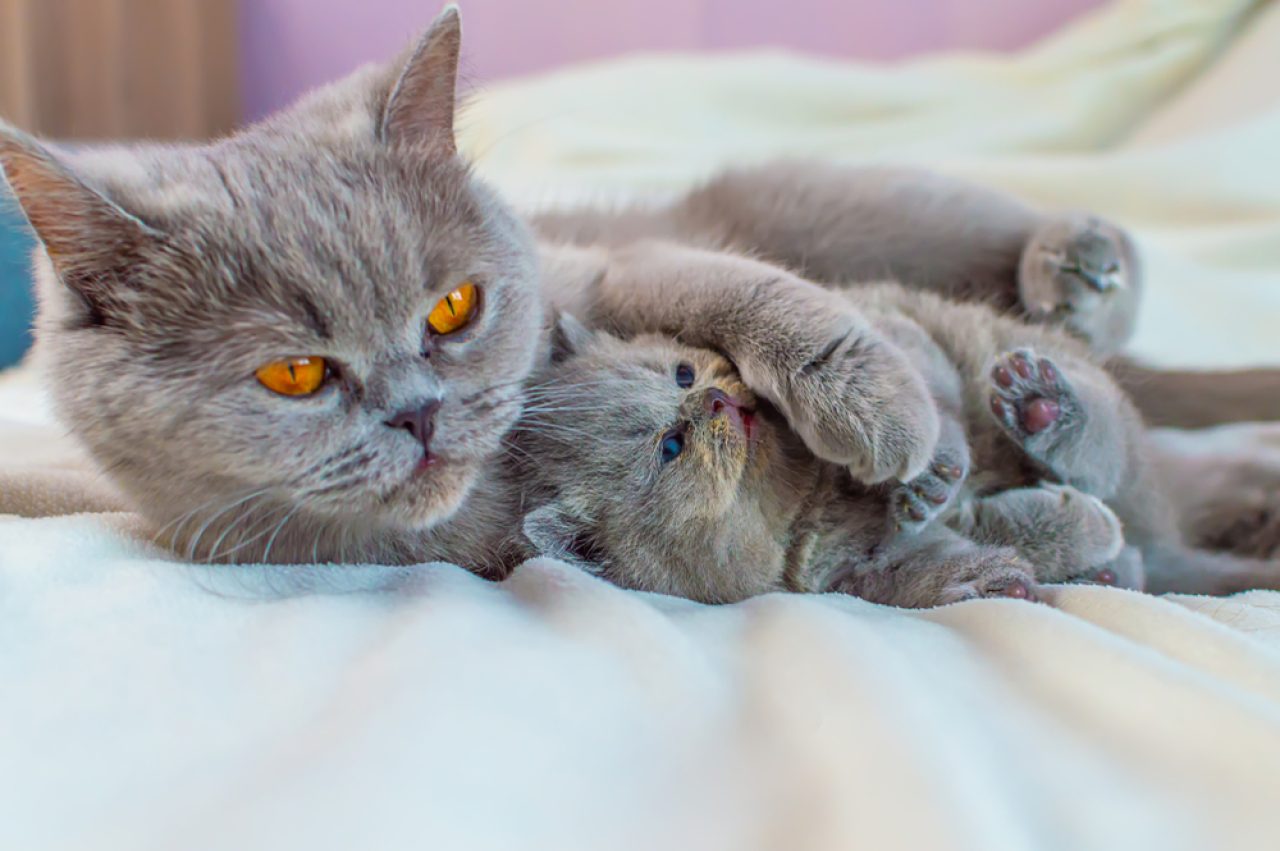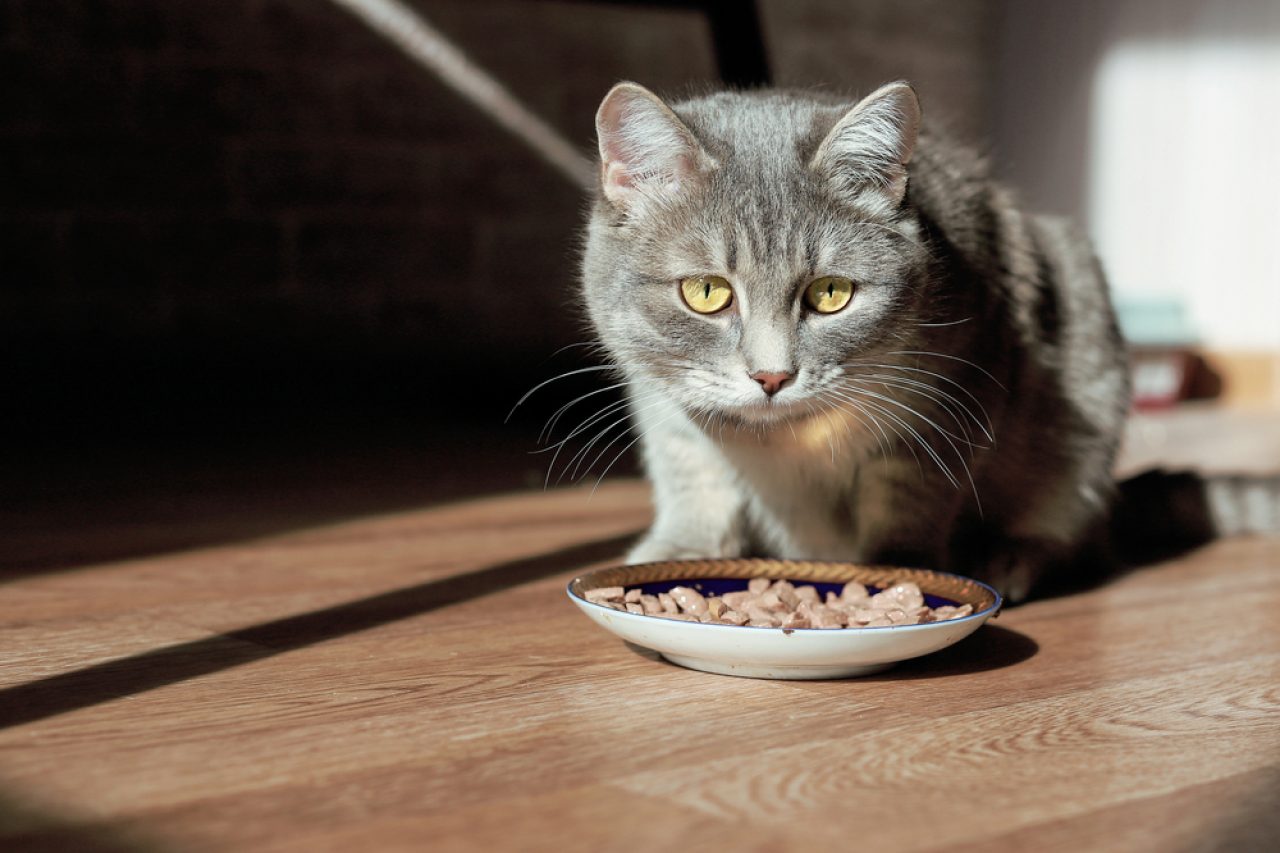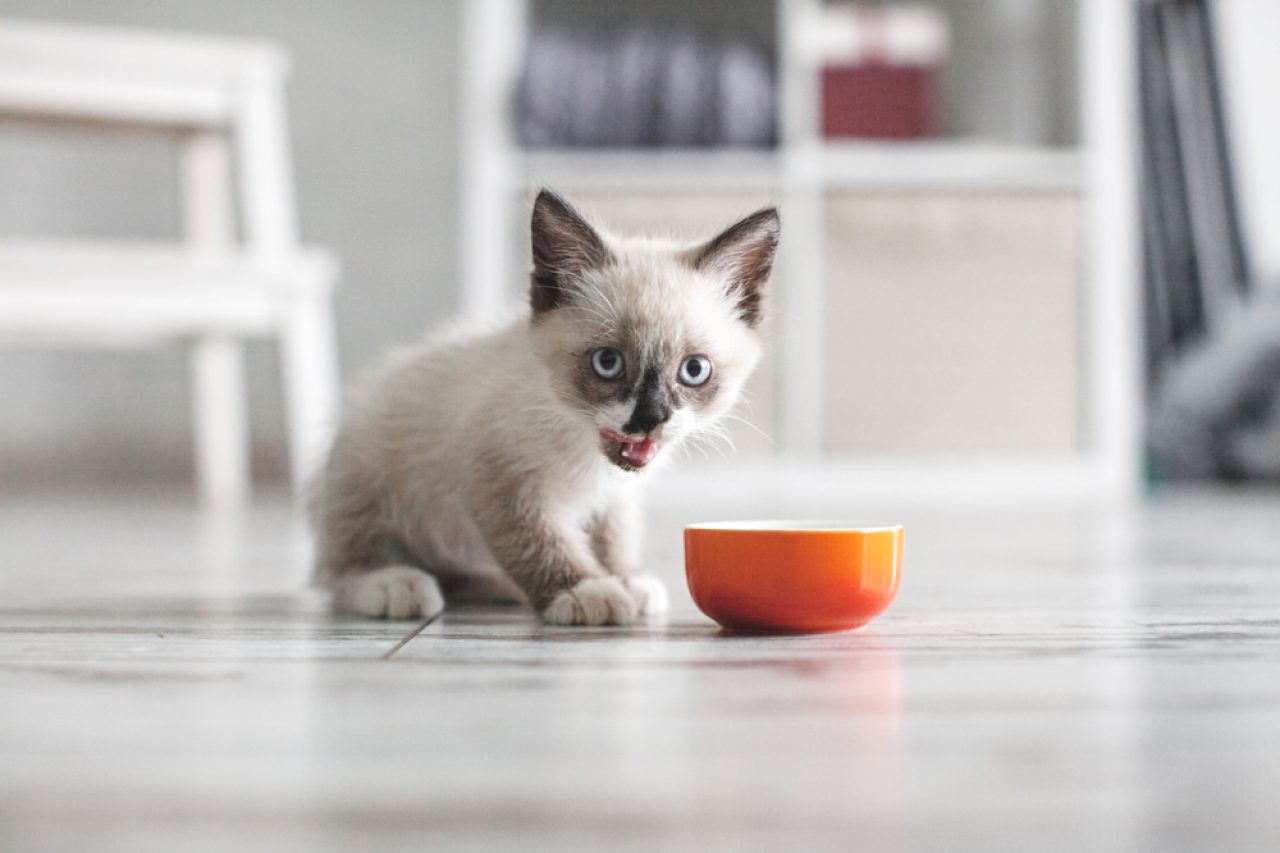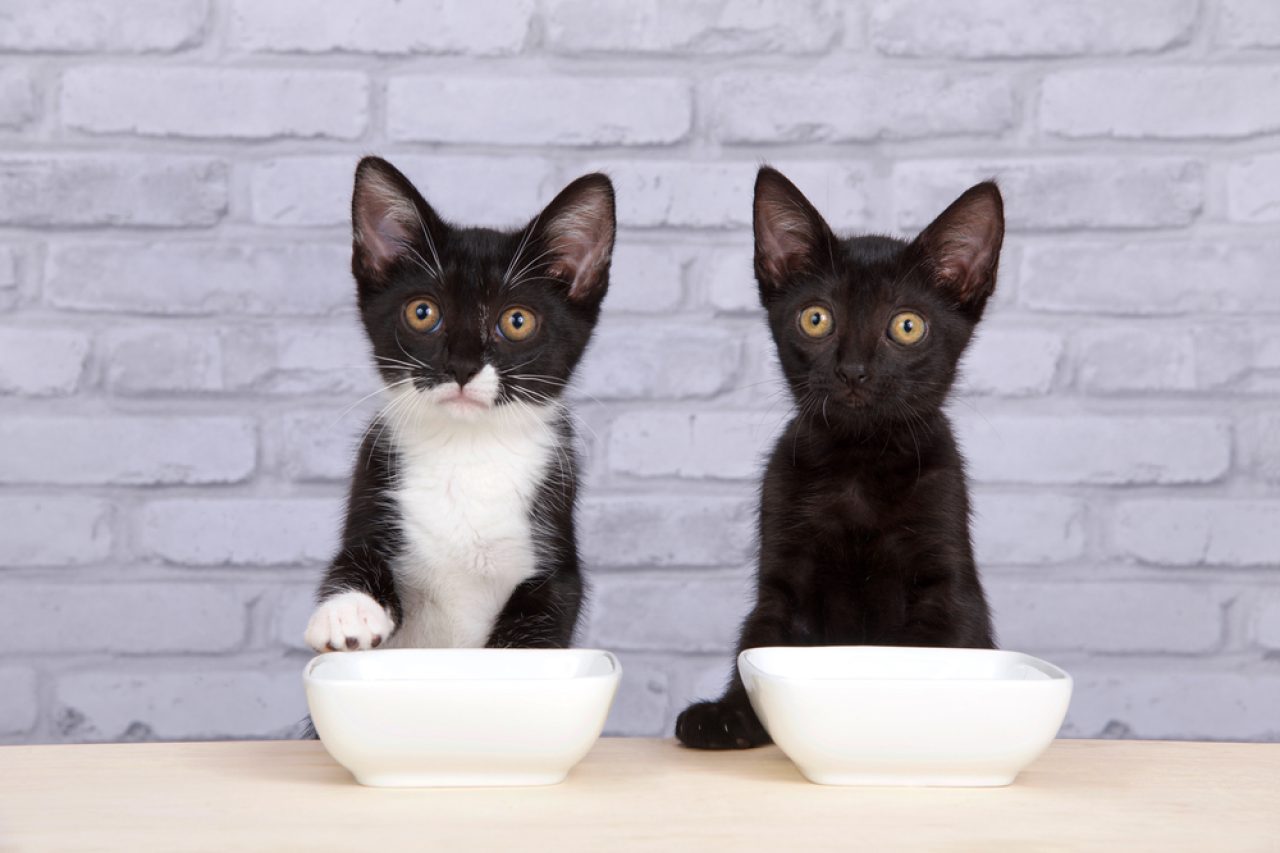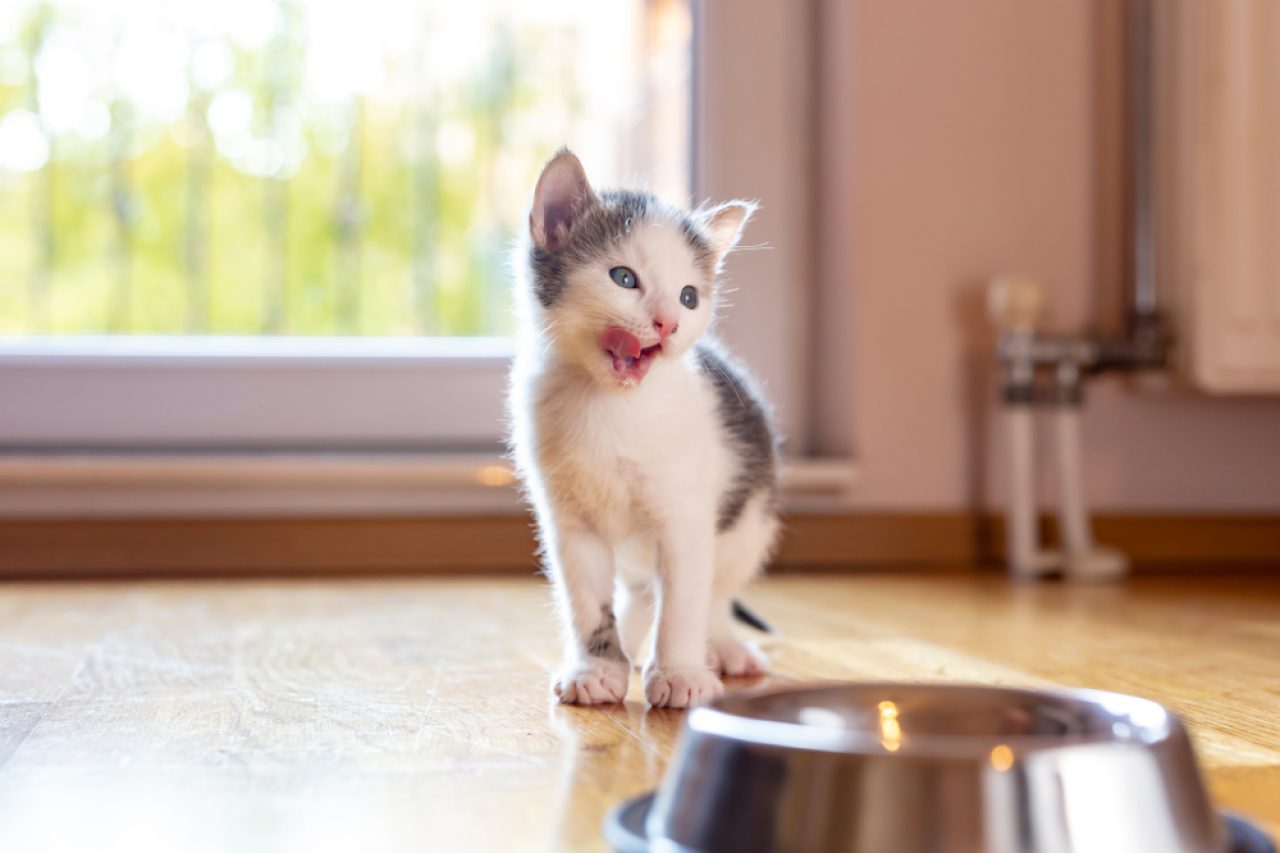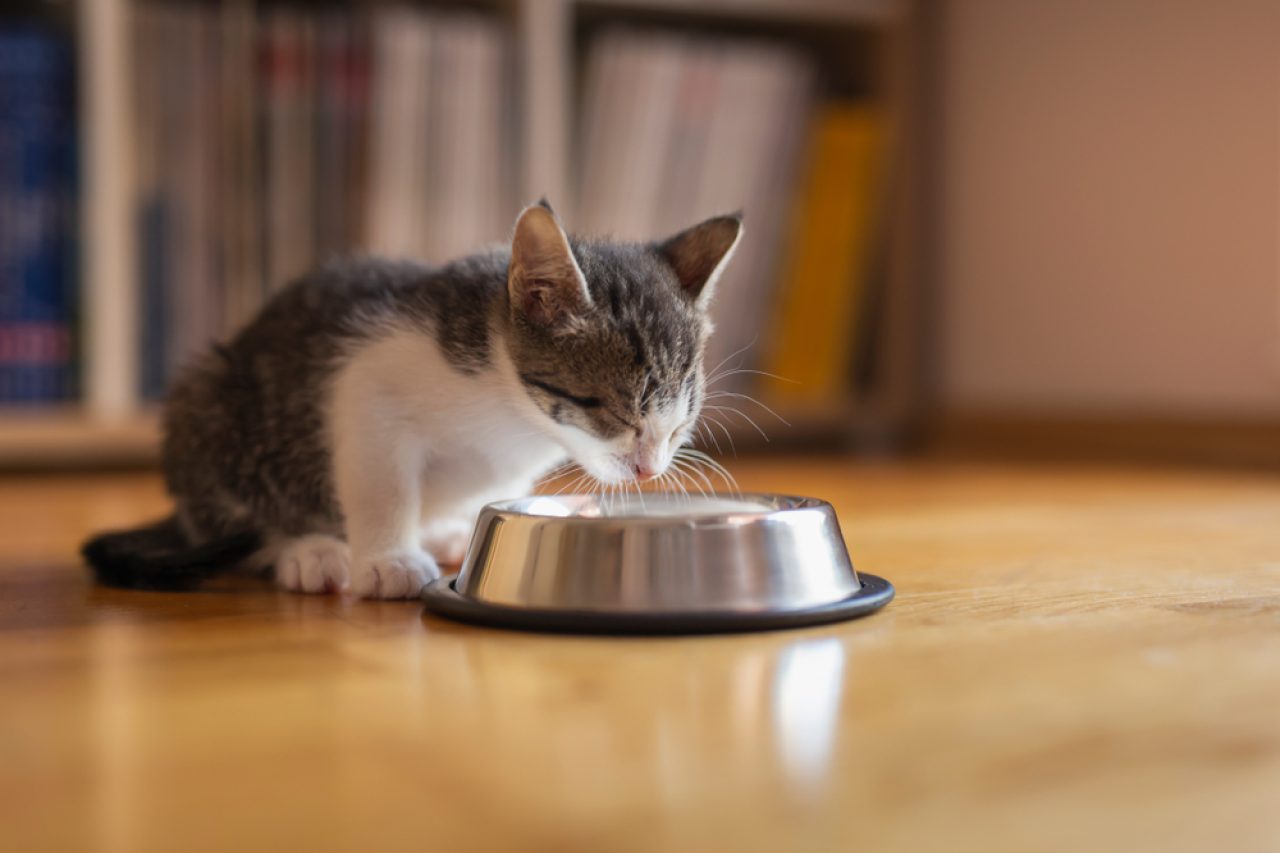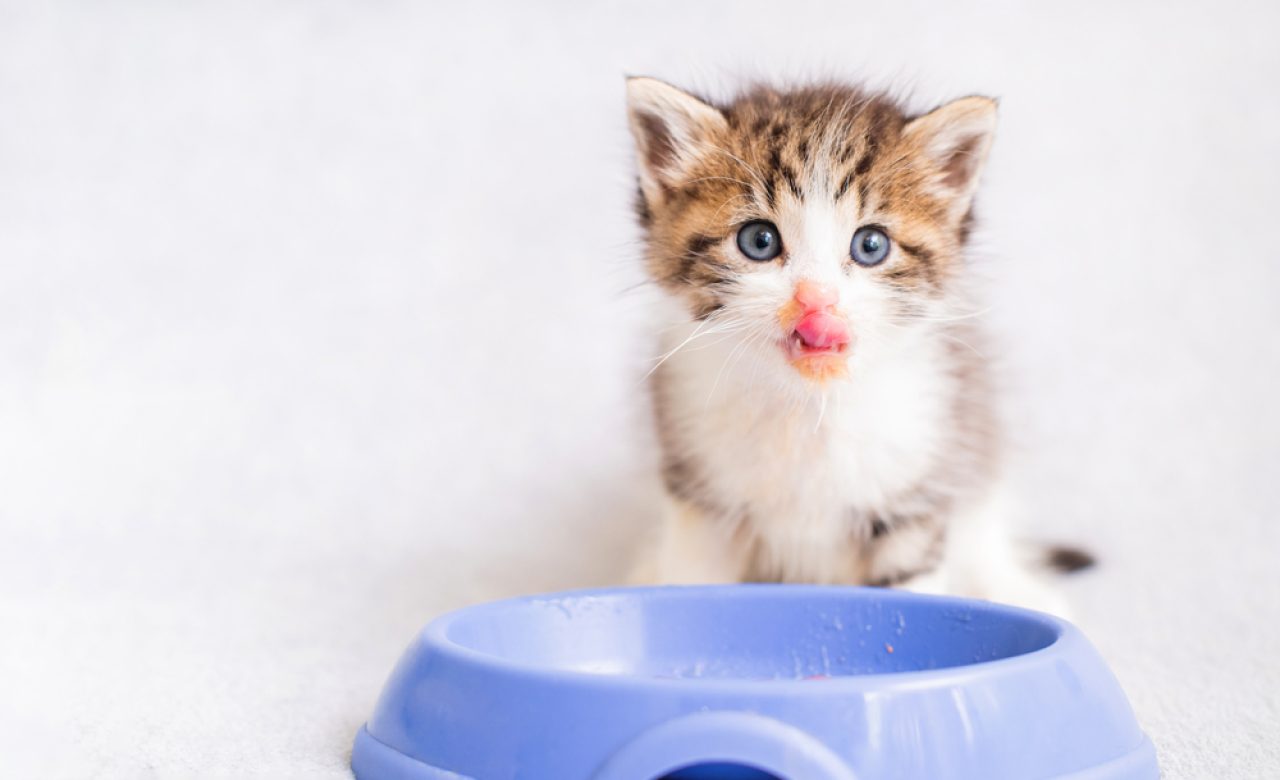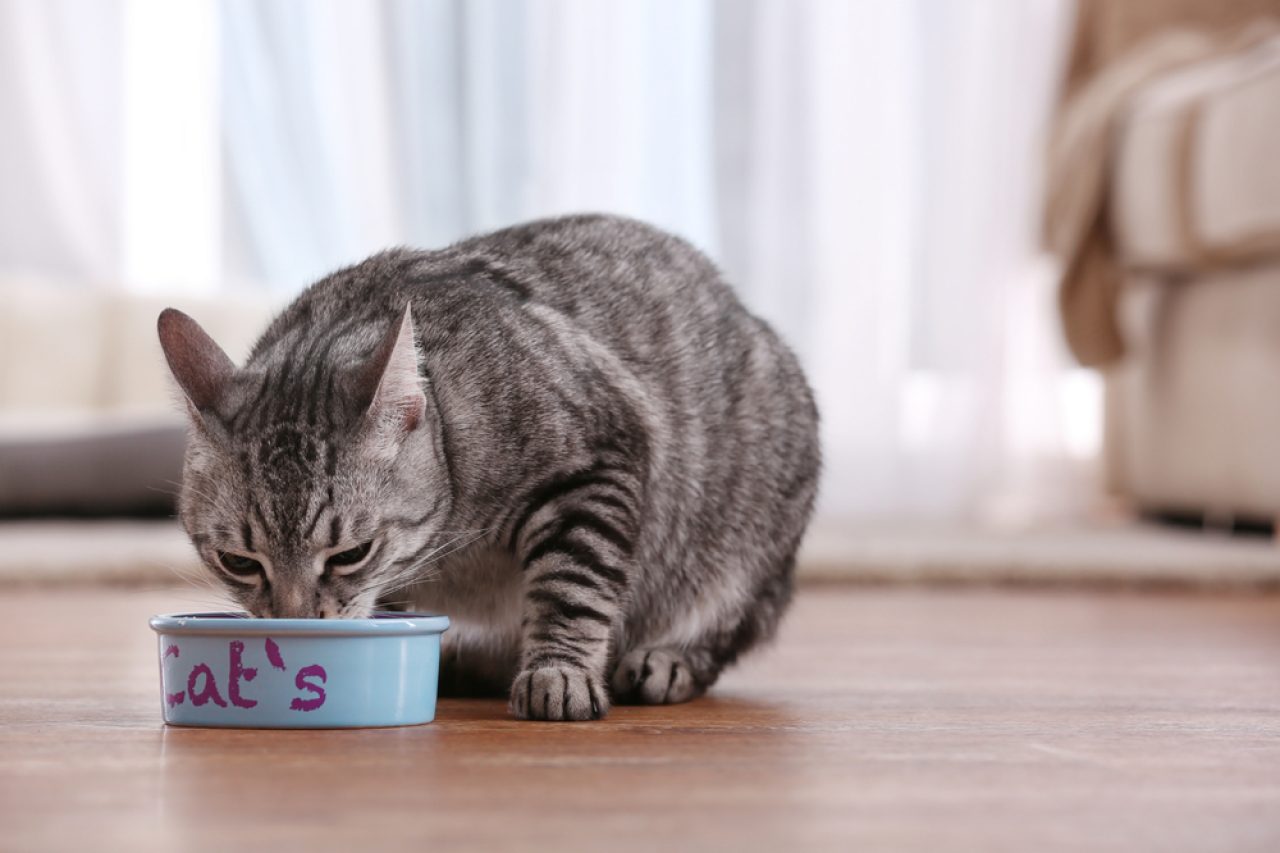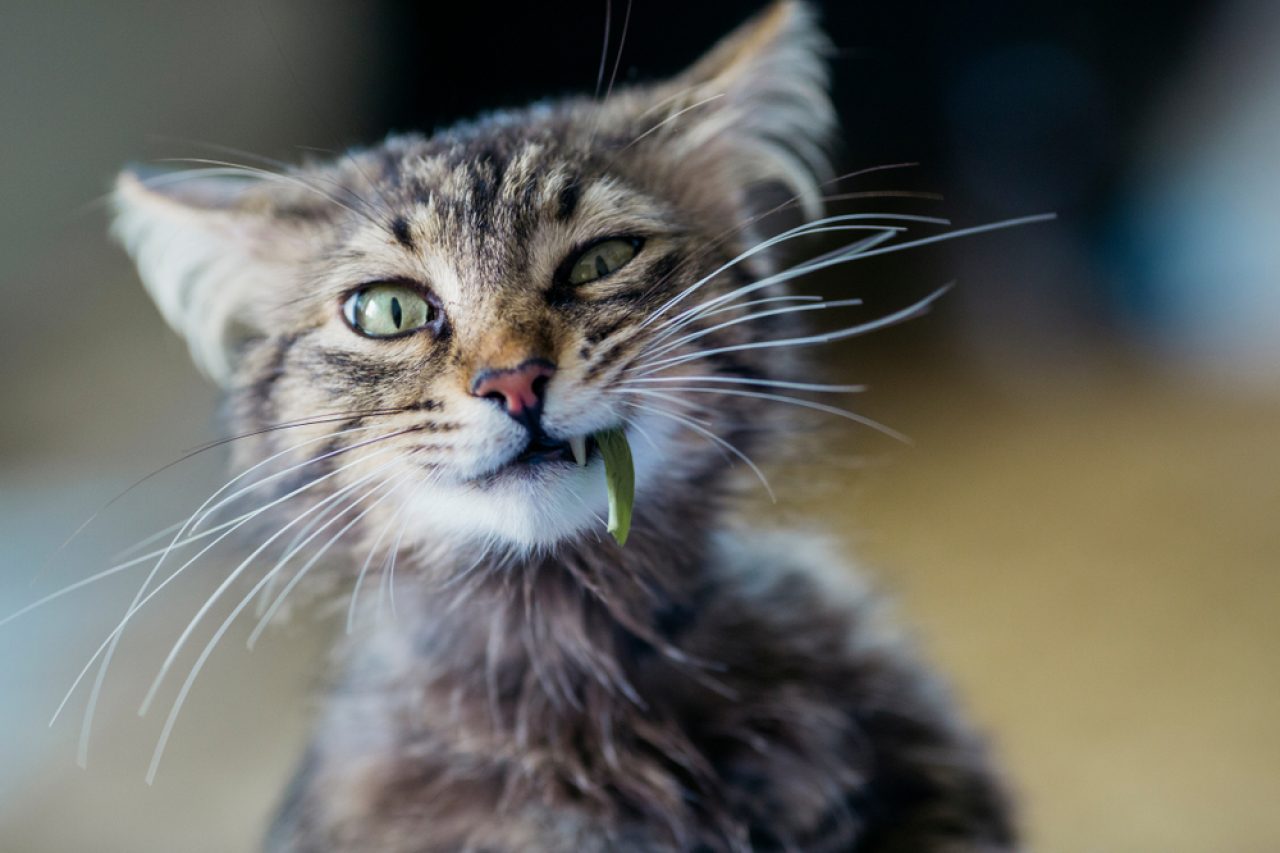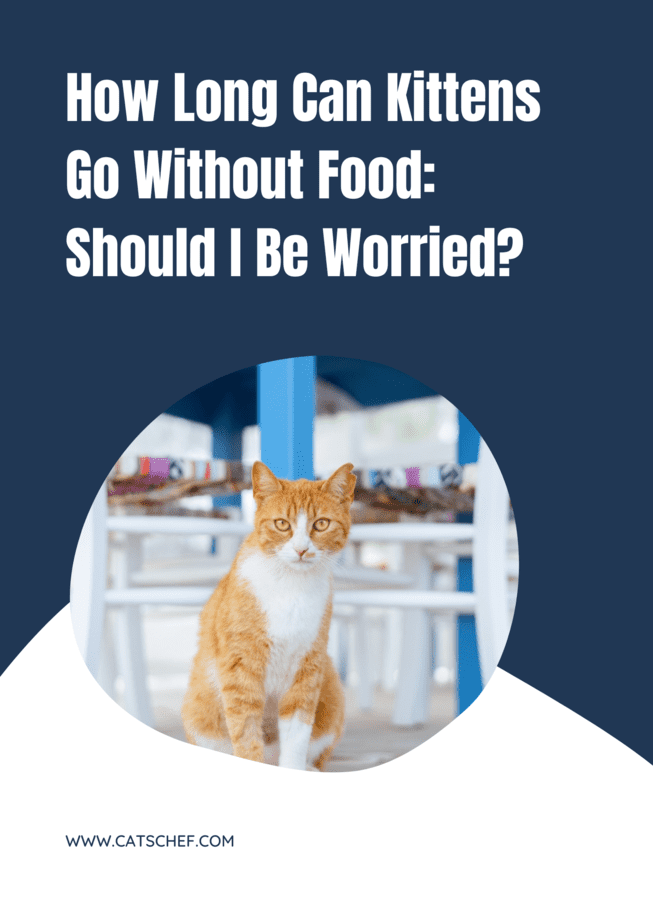📖 Table of Content:
You just got a new kitten and life is amazing again. Her cuteness makes your day much better and you always have someone to cuddle with. However, you noticed that something was wrong. Your new friend refuses to eat and now you’re in your room worrying about how long can kittens go without food.
It’s scary and you’re concerned that you’ll lose your kitten if you don’t act quickly. Here, you’ll find every answer you need to help you ease your mind. Don’t worry, there are still many efficient ways of making your baby cat eat. (And I’ve prepared that for you too.)
Try to stay calm and remember that you can only help your fluffball if you’re not panicking. Almost every problem is solvable and this one isn’t any different! I hope you already feel a bit better and we can start this quick lesson now.
So, how long can kittens go without food?
If there is access to water, the typical cat can potentially go without food for one to two weeks. Even if they have enough water, without protein, it might only be three to four days. A cat wouldn’t likely last more than three days without food or water.
It is crucial to emphasize that a cat might become underweight and ill and even require emergency veterinary care if it goes without food for even two days. For a happy and healthy life, all cats require a steady supply of fresh water and food.
You shouldn’t presume that cats will be able to forage for food on their own if necessary. The ability to obtain their own food is not a capability that all domestic cats possess, despite the fact that many of them can hunt and catch mice, birds, squirrels, and other small creatures with relative ease.
Domestic cats frequently grow accustomed to receiving their meals at specific intervals, so if this doesn’t happen, they might not look for other food sources.
What food should I give to my kittens?
Every kitten needs a high amount of calories per day, especially if we compare them to cats. So one of the answers to “How long can kittens go without food?” is “A lot less than cats.” Also, a diet for kittens should be full of proteins and fats to ensure their growth.
To help you gain all the knowledge you need, I prepared the ideal meal plan for your baby cat. Take a look at it:
If your kitten is 0-4 weeks old she should usually drink her mother’s milk. But, if for any reason she can’t do that, you can give her the special milk replacement formula. It’s important to know that you shouldn’t give her cow’s milk as it can seriously disturb her digestion and overall health.
If your baby cat is 4-5 weeks old, you can always give her some solid food with milk. Remember that it should always look more liquid. Then over time, you can slowly add more solid food, so your kitty may start adjusting to it.
Cats are picky eaters, but kittens still aren’t so you can choose from many tasty options. And your kitty will most likely eat it and won’t throw any tantrums.
When your kitten is 6-8 weeks, she can start eating proper solid food. It’s best you serve it 3 to 4 times a day.
At the age of 8 weeks and more, your kitty becomes mature and physically attracted to other cats. That’s when you can start serving her canned food too.
Always remember that your newborn fluffball only needs her mother’s milk or milk replacement formula. Kittens that age are too young to digest anything else. Also, never serve her the food you eat. You have different diets for a reason!
Why is my kitten refusing to eat?
When your kitten refuses to eat you can’t stop asking yourself “Why she’s not eating?” and “How long can kittens go without food?” I know it’s scary and you’re afraid that you’ve done something wrong. You need to know that you didn’t cause this behavior as there are many reasons your cat might not want to eat.
Some of them are more common while some appear only sometimes. I prepared a list of the 7 most common reasons kittens refuse to eat, and I hope it will help you understand the topic better.
1) Her mother isn’t around
When they are born, the kittens are blind for the first 10 to 14 days. During that period, they are completely dependent on their mother. She is the one who feeds, protects, cleans, and warms them.
When those 10 to 14 days pass and when they finally see the light of day, they are close to being separated from their mother. Kittens that are separated from their mother during this period are very vulnerable because they cannot digest solid food but only their mother’s milk.
Even if the kittens are older, they can also refuse to eat, however in that case you can give them diluted milk with water, and today you have a large selection of food for small cats.
2) She’s stressed
Stress is probably one of the biggest problems of today’s age. Although stress is usually associated with humans, there are also many cases of stress in animals, especially in pets such as dogs and cats.
If you’ve recently moved, got a new pet, or simply don’t pay as much attention to your kitten as you used to, all of this can cause stress. As a result, your cat can become lonely and lose her appetite.
Therefore, if you notice that your cat starts avoiding you, looking for quiet places, and no longer reacts to food like she used to, stress can very easily be the cause.
3) Your kitten doesn’t like the location
Although it’s common knowledge that cats are probably the only animals that eat together even if they have never seen each other before, sometimes certain cats still don’t like to share food. You’d probably think they’d fight for food in that case, but cats are very specific animals.
In this case, cats often know that they will not eat at all in protest, but will just sit by and watch. Then it’s necessary to move your cat to another place and to give her food from a different bowl. Also, it is very important that the bowl and the area around it are clean.
4) Issues with nursing
Mother nature can be cruel sometimes. You’ve probably watched a wildlife documentary on National Geographic at least once and found yourself on the verge of tears when a pack of lions attacked a small antelope or when a mother bird threw her baby birds out of the nest due to lack of food.
But it’s the law of the stronger that rules in nature. Thanks to that law, a huge number of animals have survived for thousands of years. Just as a mother bird throws the baby birds out of the nest, so the cat knows how to throw away one of the kittens and will not allow it to nurse.
However, this can still be overcome, you just need to be persistent and return the kitten to her mother, until she is strong enough to start eating on her own.
5) She has a toothache
Like humans, cats are also born without teeth. After a certain period of time, they start to grow. Just like babies when they cry a lot because their teeth are growing, kittens can start to refuse to eat.
During this period, you shouldn’t give them hard food, because their teeth are still small and sensitive, but the food should be soft and liquid. Also, if your kitten has injured herself while playing by biting on some hard objects such as stones, this can lead to pain and cause her to refuse to eat.
That’s why your kitten’s toys should be like food, as soft as possible while they are still small.
6) There’s an undiscovered illness
Cats are very sensitive when they are small, and there are a large number of parasites and viruses that can seriously harm them, and some can even lead to death if not treated adequately. One of the worst diseases that can affect them is panleukopenia, more commonly known as cat distemper.
It is very important that you recognize the symptoms at the very beginning and start treatment immediately. Of course, as we have already said, there are a huge number of viruses, some are very harmless, but they can cause loss of appetite.
That is why if you want to act preventively, it’s very important that you take your kitten to the vet to get all the necessary vaccines and thus prevent your cat from getting sick.
7) Other common reasons
There are other reasons why your cat refuses to eat. One of them is the food itself. Maybe your cat just doesn’t like beef or the smell of fish. In that case, you should definitely change your cat’s food.
Also, maybe you’ve been buying your cat food from one manufacturer all the time, but then you decided to switch. They may or may not like it. You will easily see that. Mostly cats are animals that, in addition to sleeping, which is their favorite activity, can’t wait to eat.
And so if you notice that your kitten is not eating, seek help from your veterinarian. That will help you stop worrying about “Why is she refusing to eat?” or “How long can kittens go without food?” Of course, if your cat doesn’t eat for a day, it’s not so bad, but you should be careful if it continues.
What should you do?
If your kittens are refusing to eat, and you’re afraid because you don’t know how long they can go without food, I’m here to help you. You’re not the only person who had to face this problem. Almost every cat owner has asked themself the same question, “What should I do to make my kitten eat?“
Luckily for you, you’re at the right place. Here are some of the best ideas that will help you feed your kitten. Good luck!
1) Try to tempt her
If your kitten refuses to eat or the mother has rejected her, you must try to tempt her. Cats are carnivores by nature and no cat is immune to crispy fish, juicy chicken, or freshly cooked beef. However, keep in mind that the kitten must be at least 6 weeks old before she can start eating that kind of food.
Also, the food you give her must be soft and small. That’s why before you give her the chicken, try to chop it into small pieces, or maybe even mash it. Whiskas junior is also an excellent recommendation for anyone who has problems with kittens that won’t eat.
2) Make sure the environment is nice and comfy
A very important thing is to make sure the environment where the cats eat is nice and comfy. This means that there is enough space for the cat to eat without any fuss. Your kitten needs enough space to mingle and to be able to turn around at every sound she hears.
It’s important that it’s not too noisy as well. Cats hate loud noises because of their incredible hearing that allows them to hear even the quietest whisper. Just as we don’t like it when someone walks by while we’re eating, cats don’t like their food to be in a busy hall, where every now and then someone passes by.
Kittens have an innate fear of dogs, which subsides over time, especially if they are together with a dog; however, when they are small, they are very shy. Therefore, if you have another pet such as a dog, they shouldn’t be nearby. Also, it is very important that both the bowl and the surroundings are clean.
3) Pay attention to the smell and temperature of food
The smell and temperature of food have an incredible effect on appetite in kittens. However, this is not a new thing because it is absolutely the same with humans. If the food is spoiled, the smell will not be pleasant, which will definitely discourage the kitten from eating.
However, even if the food is good, maybe your kitten just doesn’t like the smell of a certain food. In that case, you should change it and give her something else.
Another important thing is the temperature. Unlike humans, cats cannot refrigerate their food and must wait for it to cool naturally.
It often happens that if the food is hot, the kittens get burned and then start to avoid eating. Therefore, you should be careful what kind of food you give them and how warm it is. Of course, it shouldn’t be cold, but definitely not too hot either.
4) Establish an eating schedule
The eating schedule is a very important thing that people tend to overlook with cats. They are usually fed without any particular pattern. However, this is not good for your cat. Because one day she can get too much food, and another day too little.
The best way to feed your cat is to set a schedule for her to eat while she’s still a kitten. That schedule can be two larger meals a day or more during the day but in smaller portions. This is completely up to you and your cat. You need to see what works best and stick with it.
For example, her first meal should be before you go to work and the second one at night.
5) Consider bottle feeding
If your kitten still refuses to eat, and she hasn’t been for more than a couple of weeks, you should consider bottle feeding. If your kitten is left without a mother, you must prepare a special kitten formula for feeding.
Kitten formula is specifically crafted to provide a proper balance of vitamins, minerals, and probiotics. It actually imitates the content of her mother’s milk. It comes as a liquid or powder mix, and you can buy it at every pet supply store or from an online retailer.
One very important note. Never, never feed kittens with cow’s milk, baby milk powder, and similar preparations. All these preparations do more harm than good to kittens because of their very sensitive immunity.
6) Contact your vet (he might give you some medication)
Of course, the best option is to visit a vet. Unlike you, the vet can give your kitten an IV or the correct kind of medication. In addition, your kitten will be under expert supervision 24/7 in the clinic, which definitely increases the chance of recovery and returning to normal life activities.
Of course, you can also give the infusion to your kitten orally. All you need to do is take a syringe, draw the infusion into it and feed it through your kitten’s mouth a little at a time. But again, it is best if it goes directly into the blood, and for that, you’ll need a vet.
Final words
See, we’re already at the end of today’s lesson. I hope that you now know how long can kittens go without food, and how to help your baby cat when she refuses to eat. I’ve been there, and I know it’s stressful, but now you’re aware that it’s a problem that can be solved and there’s no need to panic.
People say it’s easier said than done. But when you know all these facts, you get an idea of what you should do. Good luck and hopefully, your kitten will be eating again in no time!
